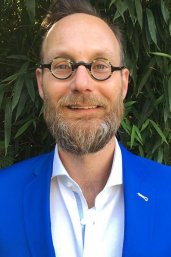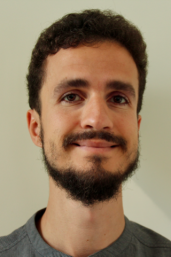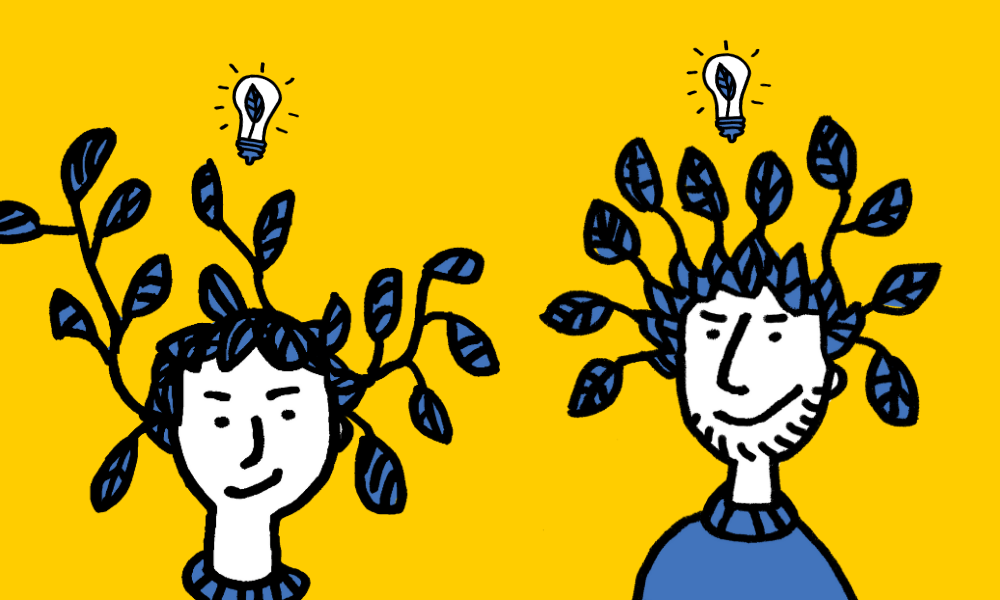Can Climate Activism and Utrecht University's Bright Minds Fit Together?
In a time where the world is changing very rapidly, there are many things that are not following suit. The year of 2020 has had a particularly bumpy start, with news of Australian bushfires ravaging the country on an unprecedented scale. On the bright side, these events may provide a wake-up call for wealthy countries, who originally might not have felt concerned. This is very relevant to the Netherlands, as UU scientist Maarten Kleinhans recently mentioned that there is a false sense security in our country, given the never-before-seen scale of floods which we might start experiencing before 2100. Even for Dutch water management expertise and infrastructure, keeping the Netherlands afloat may become a serious challenge.
The purpose of this article
As countries around the world start to feel the heat, climate activism has been increasingly getting space on the news, but without always being followed by a positive reputation. Activists can sometimes be seen as a nuisance, or as a polarizing force that does not contribute anything to the problem. But what is activism, really? Is it only something done by naïve students? Does it stir a fuss, more than it solves a problem? Does it have to be on the street, or can it also be done within the workspace? To develop answers to these questions, we at the Green Office picked the brains of two different researchers at Utrecht University who support climate activism, and their definitions for activism might be broader than you would expect.
Two faces of activism at Utrecht University

Floris van den Berg
Floris van den Berg, assistant professor in environmental philosophy, tries to use philosophy to contribute to a better world. He decided to focus on environmental issues and to teach environmental ethics because he looked around wondering what the greatest problem was and determined that it was trying to keep the planet liveable for its species, including humanity.

Daniele Castellana
Daniele Castellana is currently doing his PhD in oceanography at Utrecht University, looking at the Atlantic meridional overturning circulation (a component of the ocean currents which sustain our current climate system), and at the tipping points which we may one day reach that will create more abrupt changes in the way our climate functions.
What does activism mean to you?
While Floris and Daniele have both been on the street for the climate at one point or another, the different forms of activism that they have participated in may differ from your expectations. For example, both Daniele & Floris are part of the Dutch branch of a collective called Scientists4Future NL. Inspired by their counterpart in Germany, the collective is based on the idea that scientists should be more active and vocal about climate science; their first action was to support Fridays for Future strikers by writing a support statement and collecting over 2000 signatures in the Netherlands.
Additionally, Floris feels that he participates in activism by using his academic knowledge to reach conclusions and striving to make those conclusions into a reality by going above and beyond with his writing. Beyond lecturing, he gives public talks to diverse audiences, and also tries to tailor his written work for a general audience, while being a member of different NGOs, the Party for the Animals, and signing petitions.
What is activism, then?
While all this is well and good, is this not a little broad? What is it that ties these forms of ‘activism’ together? Maybe the answer is hinted in the word, with activism being about taking action, and going beyond what is expected of you.
Daniele: “To me, activism is about trying to get out of your bubble. I feel that, within a university, it is easy to remain with the confines of your ivory tower. I believe that one can be ‘active’ by trying to be more vocal; reaching out to people in a different way than through academic papers”.
Floris thinks similarly: “The key to activism is to think about where you can put your knowledge and your capabilities to good use. I am sure that this is something which we should all reflect about”.
What is the intended effect of activism?
With a broader point of view on activism having been established, it is time to look at what the intended goal of activism is.
For Floris, who has established himself as a more controversial figure, it’s plain and simple: “I am primarily a philosopher, so I like to give arguments regarding what I think people should do. I am not a psychologist or a marketer. As a philosopher, I argue why we should all go vegan and reduce our ecological footprint”. Floris’ personal goal is in fact to make Utrecht University the first fully vegan university in the world.
For Daniele, the goal is to reach out to more kinds of people and breach the gap between the bubble of scientists and wider society, by use of different platforms. “When I go outside of my bubble to talk to a person who is not part of this world, we talk about completely different things”. We must also not forget the way that activism can push government to act on an issue, which is another one of its intended effects according to Daniele; "I believe that we desperately need urgent actions that put our knowledge into practice through good policies, to mitigate the effects of climate change and prevent catastrophic effects in the near future". Daniele does therefore actively support more typical forms of activism, such as non-violent civil disobedience strategies employed by groups like Extinction Rebellion. “In a world where other solutions seem to not have succeeded, such disruptions can be a good way to reach society in the short-term, while education is excellent for the long-term”.
If the alternative is that we do not step forward because we are afraid that people will not follow us, then we will never move forward
Should we be loud and bold, or neutral?
When it comes to bolder and more imposing forms of activism, a big question always persists… Isn’t activism counter-productive? Does it not alienate people from your message? Neither researcher pretended to have an all-encompassing answer to this, but they still choose to go on and reach out to people in the best way that they can.
Floris thinks that this argument is an excuse to not do anything, to “put sand in a motor”, while other forms of climate action have not been working or sufficiently pushed for. “There has not been one strategy that works well for everyone. We can look at lessons from social scientists, see what works, and use techniques like nudge theory in psychology to provoke change. I am not primarily interested in doing activism in the most effective way though, as I am a philosopher”. While he does not think that everyone should have the same strategy, Floris encourages other activists to not be demotivated by people using the above argument. “There is no fully successful activism. We all fail, but the problem is not going anywhere”.
Daniele believes that the potential for activism to alienate people is a valid point, although “we can never be 100% sure regarding whether any one type of action will work, and there is always the risk that people will turn away when they see something they perceive as extreme. I believe that this is a normal human reaction, and yet doesn’t polarization pose a smaller risk than not acting at all? If the alternative is that we do not step forward because we are afraid that people will not follow us, then we will never move forward”.

Is work at a university compatible with climate activism?
With all this talk of activism, we must remember our context, which is the context of a university. One begs to wonder whether activism has a place in such a formal environment.
In response to this question, Floris brings up one of his favourite philosophers, Peter Singer, who does not distinguish between academic philosophy and activism. Singer’s goal was not only to reach academic conclusion, but to strive to apply them. Floris goes on to say that researchers make an old assumption that once they reach their conclusions, society will make sure of their knowledge and apply it. And yet, as Floris goes on: “if you reach conclusion that have serious consequences for humanity, should you not seek to push them? It’s a continuum; being in the street, lecturing, writing books, it’s all part of the same thing”. Floris illustrates this with the example of a medical department: “when the medical department of a university works in oncology, they should also want to do something about cancer. Universities are activist organizations by nature. Even Utrecht University’s slogan, ‘bright minds, better future’, actually puts activism at the core of its concept”.
Daniele also does not believe that there are contradictions between climate activism and work at a university. “The only issue that I see is the issue of neutrality, and whether universities should have neutral stances on such global issues. Personally though, if by neutrality we mean being expected to do our jobs and nothing more, then I don’t think that this neutrality is useful. If you were a doctor who sees an epidemic coming to the world, then you would probably want to do as much as possible to spread the word about it". In addition to the compatibility issue, Daniele thinks that activism has enriched his life in a way; “When I look at my work from inside, I see that the scope of my work is very limited, which is a common feeling among PhD students. There is always the fear that your work might not have an impact”. Although Daniele does believe that researchers have the potential to make great contributions to their field, he brings up the influence of climate scepticism in the media, who accuse movements like Fridays for Future of not basing themselves on facts. “I am part of the scientific community, which considers anthropogenic climate change to be a consolidated truth. There are very young people in the streets. They need support, as they are not only speaking up for themselves, but they are representing the consensus of scientists. If we don’t support them, then who else will?”.
Concluding this train of thought, Floris asks a fundamental question: “do we want a university where nobody gets upset and we only have a middle ground, or do we want to create that better future?”.
Should we only create knowledge, or should we act? Are we just 9-5 scientists, most of us are, but is this who we should be?
How can people become more active?
With all this talk of activism, the next question is, how can you get started on a path to taking action in a world that lacks it?
Daniele believes that the key starting point in acting is to be empathetic, and to “open up to the arguments of those who have already been involved in their own form of climate activism. Try to see if you can empathize with them, and they might tell you something that you did not consider before”. Additionally, Daniele mentions the university’s recent changes to its mobility policy and is glad that some changes are already happening. “Those on the ground could take action by making sure they are aware of the new guidelines of the university. For example, it can happen that a student feels pushed to go to many conferences by plane. I think it’s important that once these university policies are active, students should not be forced to fly”. Daniele believes that if the university could become a pioneer of sustainability, this could be a serious symbolic achievement, “while making a positive impact on thousands of students who, very soon, will take important roles in society”.
Floris is unapologetic in his stance on veganism, “first, you can strive to become vegan yourself. Second, we should all always strive to make sustainability happen at Utrecht University, allowing the collective weight of researchers to be felt. After all, the university is not just working for itself, but for the broader world”. The influence that the university has beyond Utrecht Science Park is critical to Floris, as the teaching of uncontested ideas – surrounding economic growth, resource extraction, or animal rights for example - can push students onto a career path of planetary destruction. “If you really want to be a pioneer, then of course you are going to make people angry, but then you are a real pioneer and you can actually make changes”. If a sustainable transition is watered down, then nobody will remember Utrecht University, and yet Floris would remind researchers that they have the chance to push for transitions from the bottom up. “Should we only create knowledge, or should we act? Are we just 9-5 scientists, most of us are, but is this who we should be?”
What do you think?
Do you think that the university and its staff should follow sustainability trends, or make them? In this university alone we have economists, political scientists, oceanographers, philosophers, geographers, literary scholars, historians, and yet if all these bright minds seek to be neutral or to only be active from 9 to 5, can we really build a better future? Let us know what you think by commenting on the top post on our Facebook page.
This article was written by Lorenzo Margiotta, Digital Communications Coordinator of the Green Office. The Green Office is where fresh hearts and minds come together to support Utrecht University's sustainable development.

